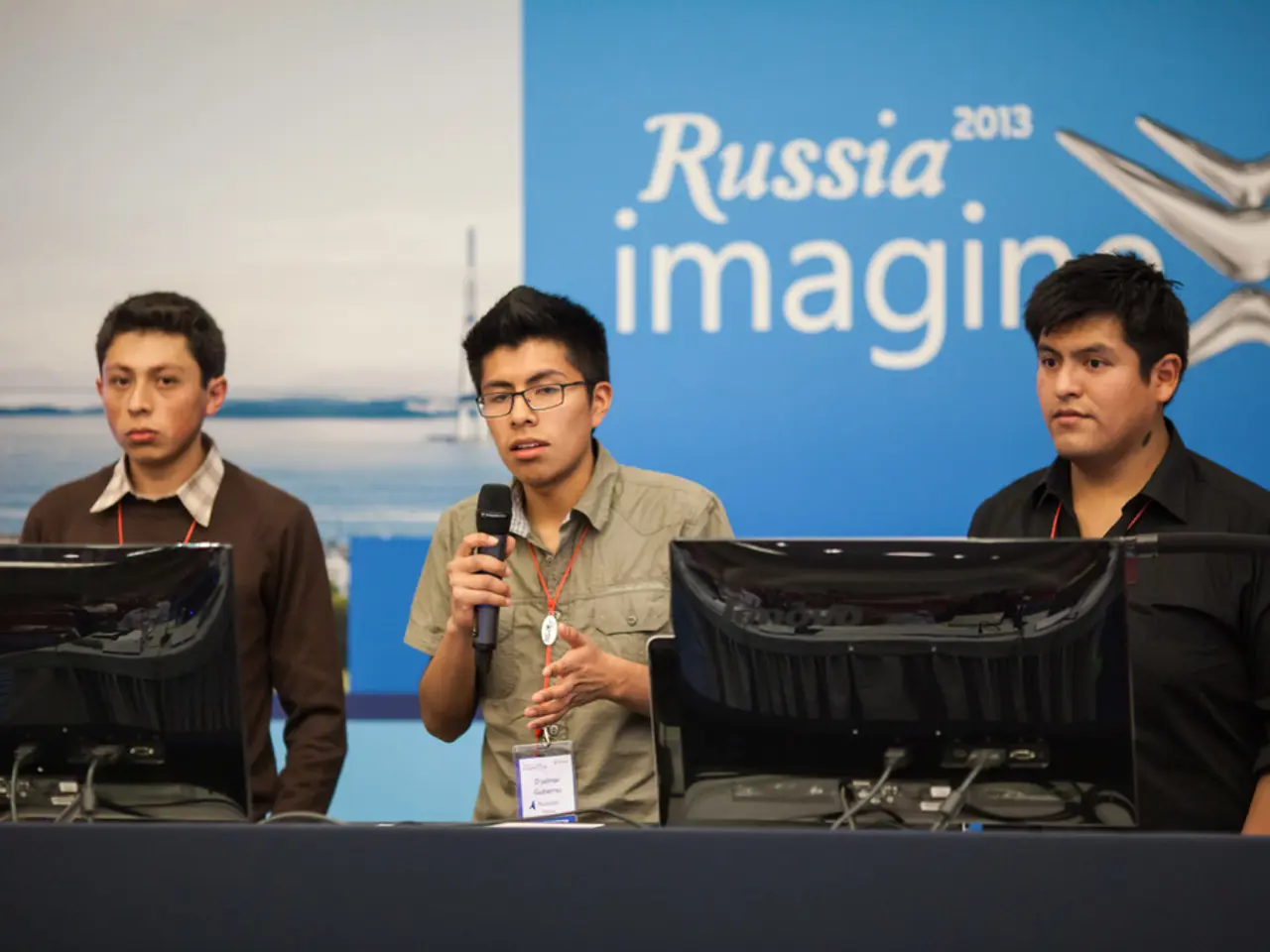War's conclusion in Ukraine is imminent, according to Prime Minister Donald Tusk of Poland.
Polish Prime Minister Donald Tusk has publicly accused Russian President Vladimir Putin of attempting to sow anti-Ukrainian sentiment in Poland and instigate tensions between the two countries. In a statement, Tusk claimed that these actions are part of a broader strategy to destabilize Polish-Ukrainian relations as the war in Ukraine nears its end.
The Polish Prime Minister's accusations stem from incidents such as the appearance of the red-and-black flag of the Ukrainian Insurgent Army (UPA)—a nationalist paramilitary group active during World War II, which Poland holds responsible for massacres of Polish civilians—in Poland. Tusk has labelled these incidents as provocations orchestrated by Russia through foreign agents and "local idiots."
While there is no direct evidence or official claims that Putin personally organized Nazi-related incidents in Ukraine or the Baltic states, the historical nationalist symbolism linked to World War II is a recurring theme in these incidents. In particular, the UPA flag incidents primarily involve Poland and the complex historical memory surrounding the Ukrainian nationalist efforts during World War II, which is sometimes exploited in propaganda and political disputes involving Russia.
Tusk did not provide specific examples of the anti-Polish gestures or anti-Ukrainian sentiments he was referring to. However, he suggested that these actions and sentiments are not genuine but rather a manipulation by foreign agents, possibly referring to Russia. Tusk did not elaborate on the nature of the foreign agents he believes are involved in the situation.
The Polish Prime Minister's statement also implied a concern about potential Russian interference in the relations between Poland and Ukraine. Tusk described the situation in Ukraine, with the display of Nazi symbols, as a "madhouse." He also suggested that Russia may be trying to instigate conflict between Kiev and Warsaw.
In summary, while there is no direct evidence that Putin personally organized Nazi-related incidents in Ukraine or the Baltic states, Tusk has accused him of orchestrating and exploiting anti-Ukrainian sentiment in Poland. This accusation comes as the war in Ukraine nears its end, and tensions between Poland and Ukraine remain a concern for the Polish government.
- As the war in Ukraine nears its end, the Polish political landscape is increasingly dominated by discussions about war-and-conflicts, with Prime Minister Donald Tusk urging the public to be wary of Russia's attempts to sow anti-Ukrainian sentiment and instigate tensions between Poland and Ukraine.
- Besides war-and-conflicts and politics, general news about historical nationalist symbolism linked to World War II also remains a topic of interest and concern, as evidenced by the Polish Prime Minister's accusations against Russian President Vladimir Putin regarding incidents involving the red-and-black flag of the Ukrainian Insurgent Army in Poland.








